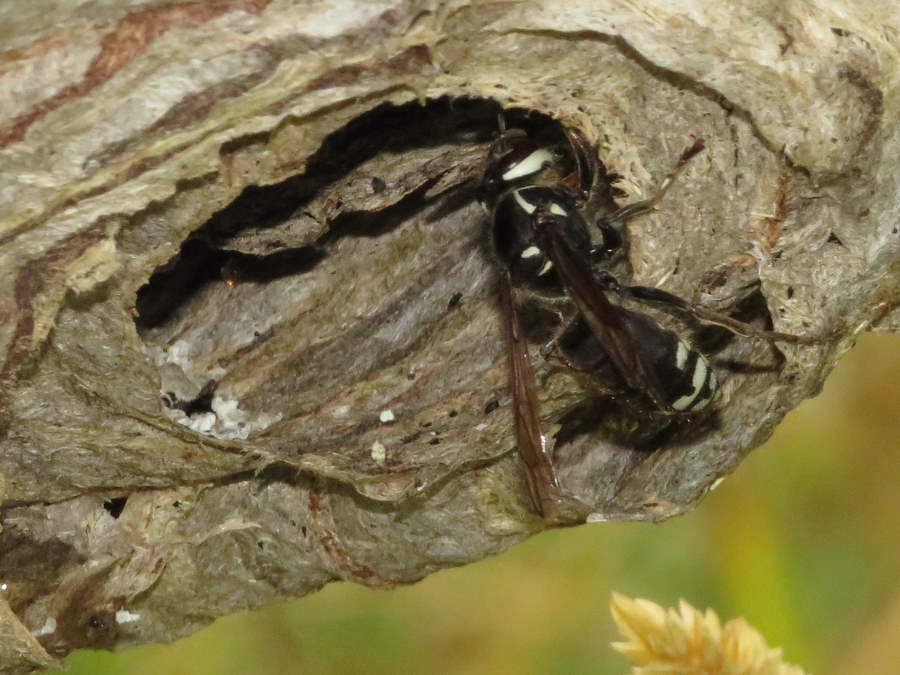
Thanks for visiting Nevada wasps and bees. The Nevada wasp world generally recognizes both the benefits and potential harms caused by the hundreds of vespid wasps or stinging wasps in the state.
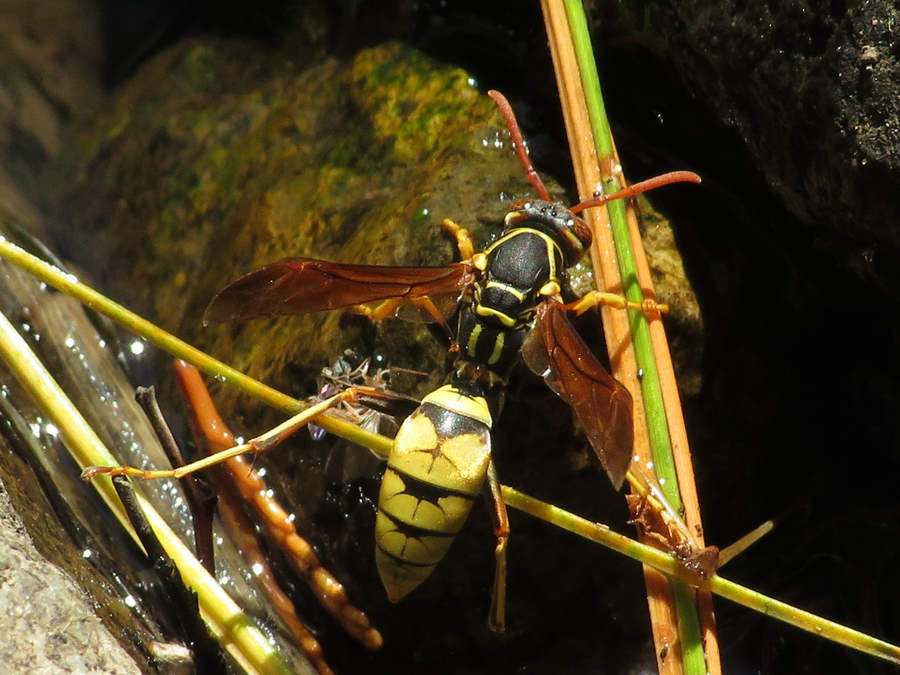
Fortunately, yellow jackets and paper wasps, can be fairly easy to identify. Concerned residents need only know species and their nesting behavior to take preventive action if necessary.
The picture at the top of the page, for example, shows the Bald-faced hornet. It builds large nests, often in trees and bushes around the yard.
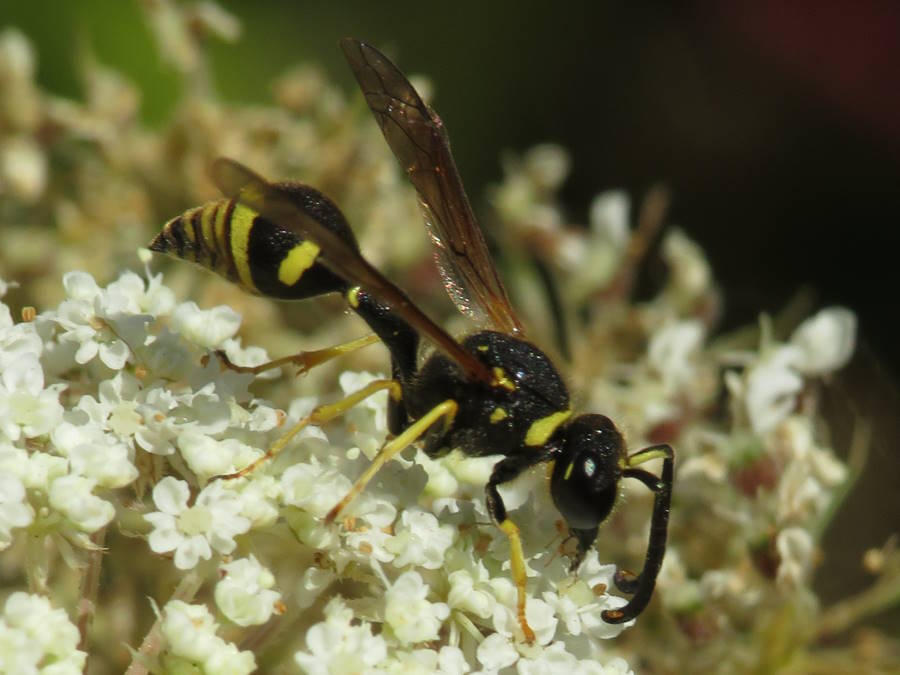
Eumenes wasps, one group of the potter and mason wasps, also fit into the vespid category. However, like all potter and mason wasps, they are solitary wasps that generally cause no stinging problems.
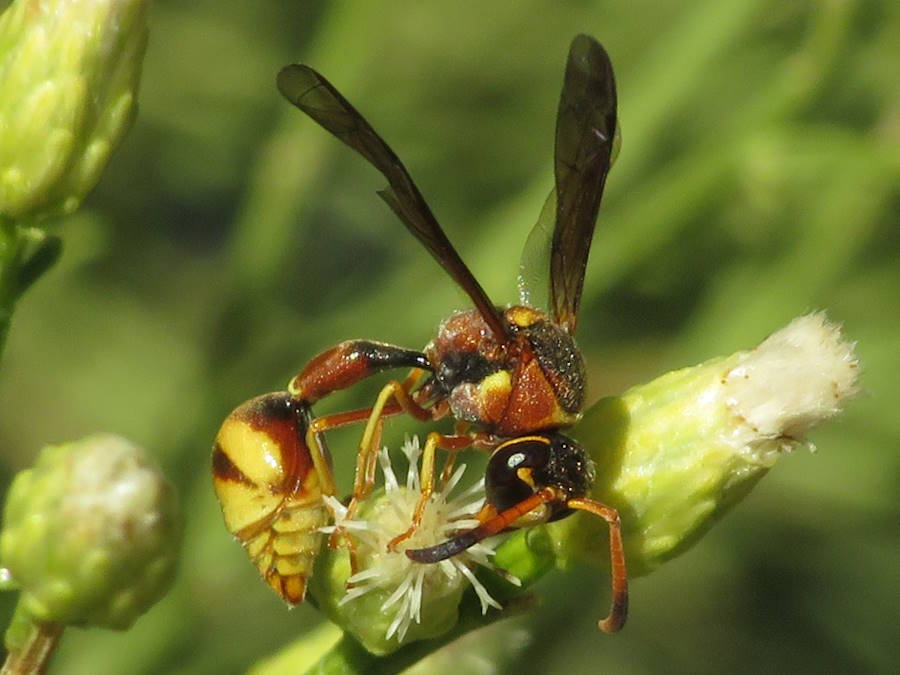
The red shading on Boll’s potter wasp makes it an easy ID
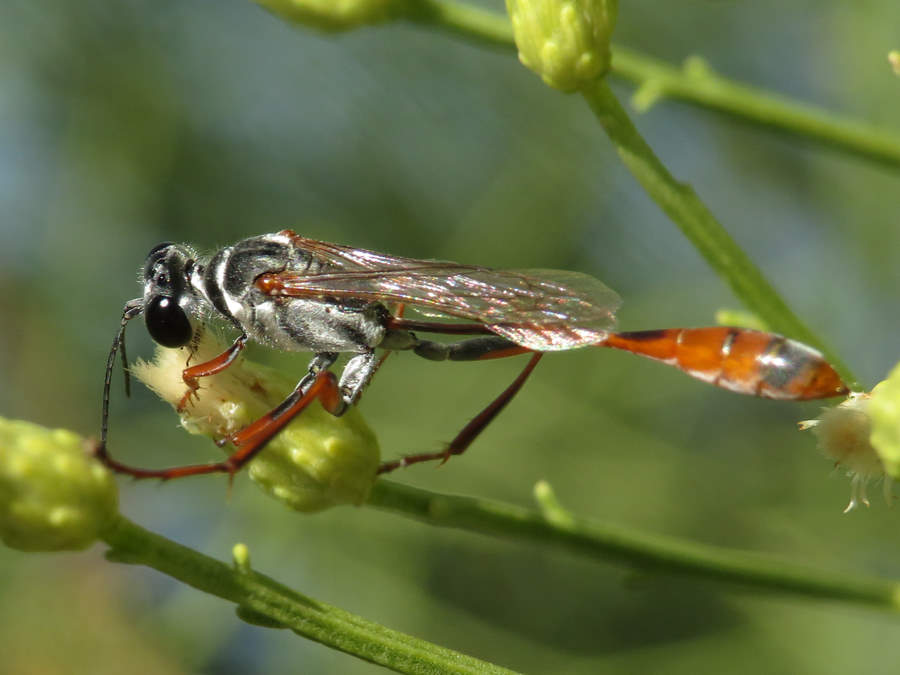
Abert’s ammophila
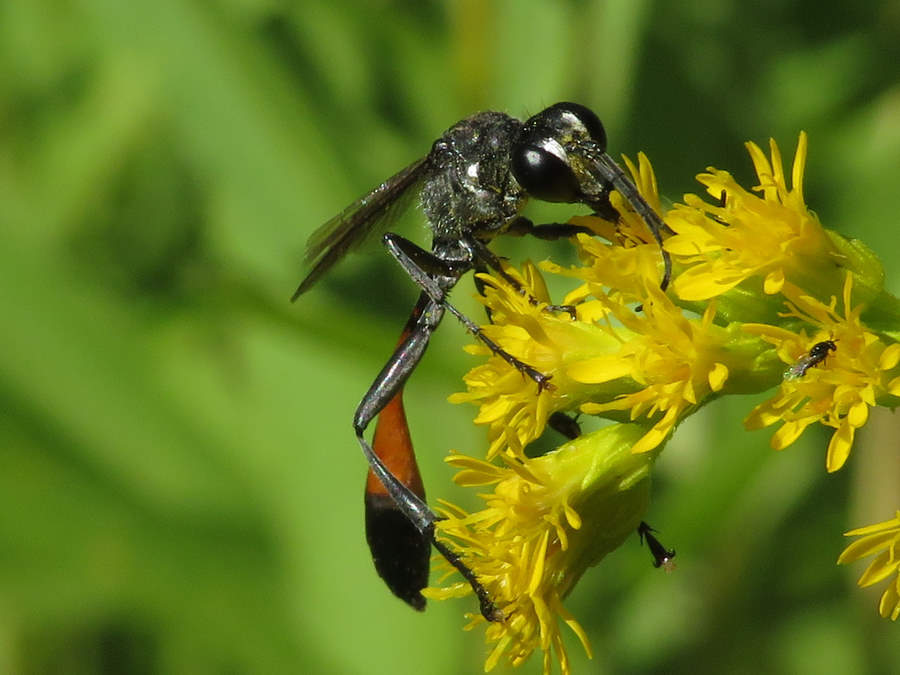
Ammophila
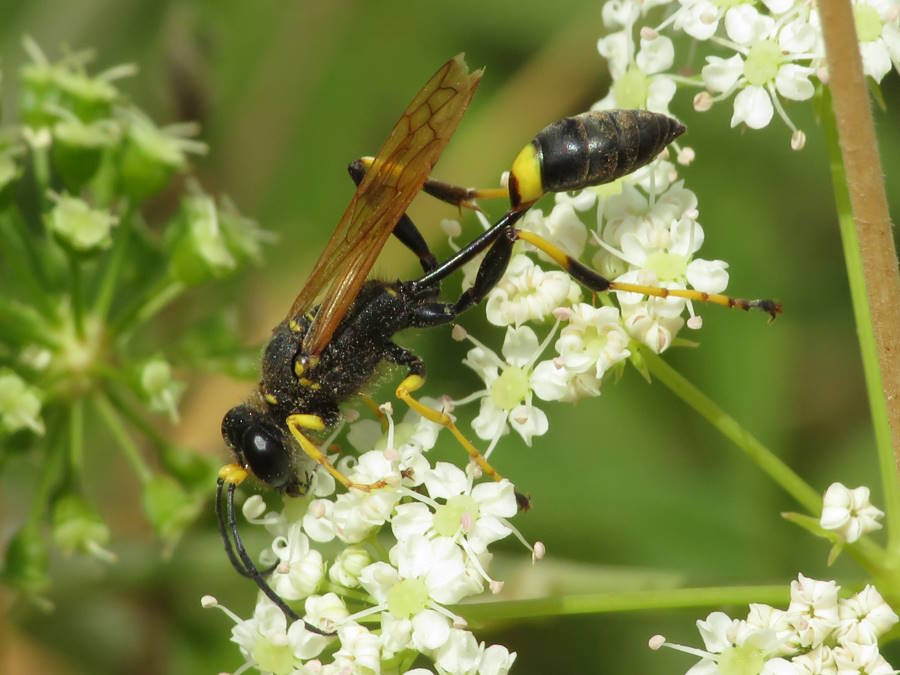
Back and Yellow Mud Dauber
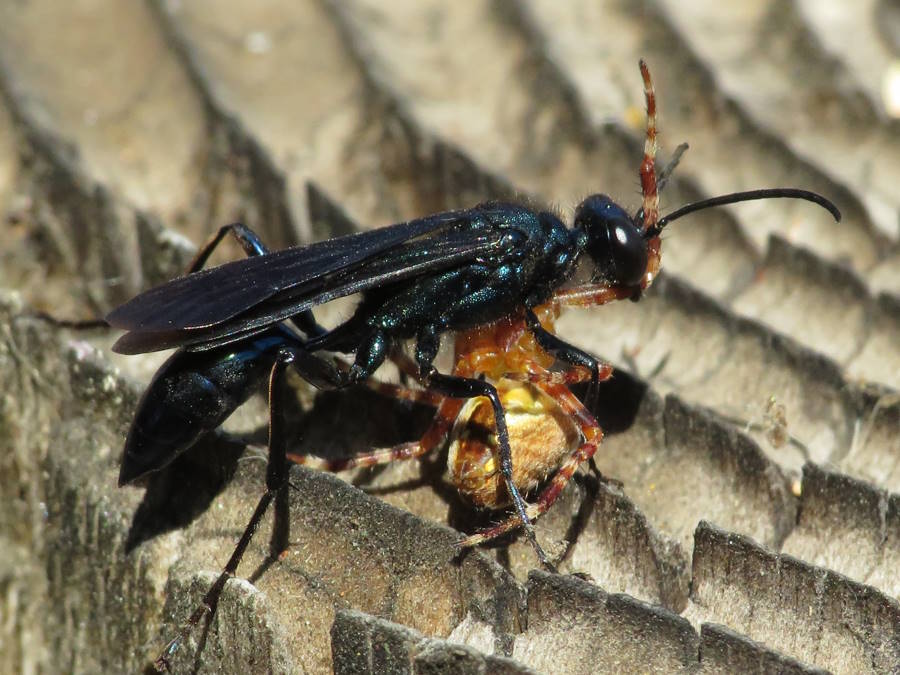
Blue Mud Dauber
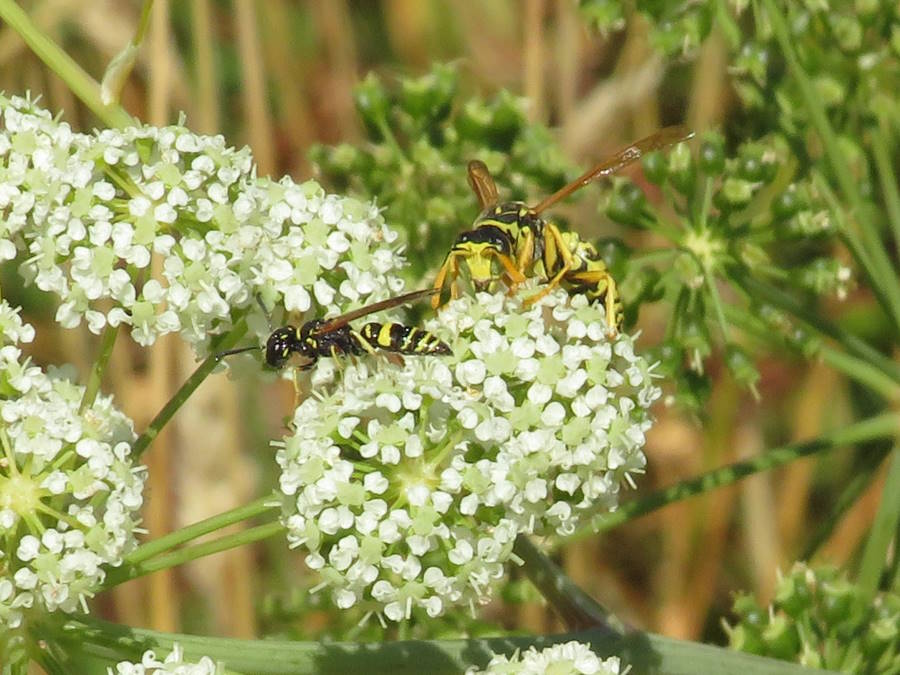
Comparing the size of a paper wasp with a beewolf. Beewolves are one of the many similar sized wasps and bees with black and yellow body colors around the home and garden.
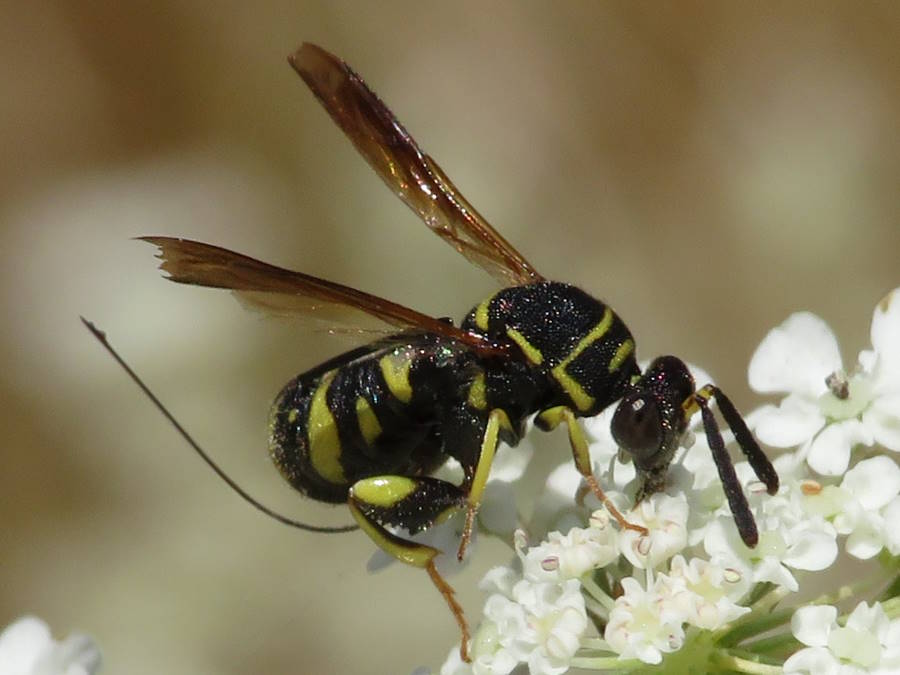
A small parastoid wasp, leucospis affinis, is one example of the smaller black and yellow color garden wasps. Females have an ovipositor that curls up in the back
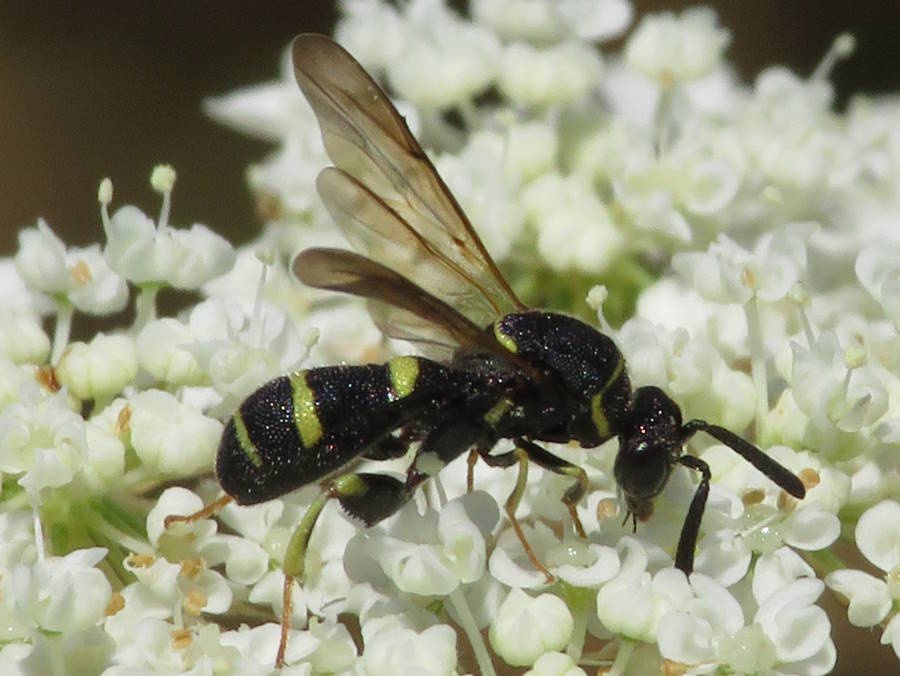
leucospis affinis male
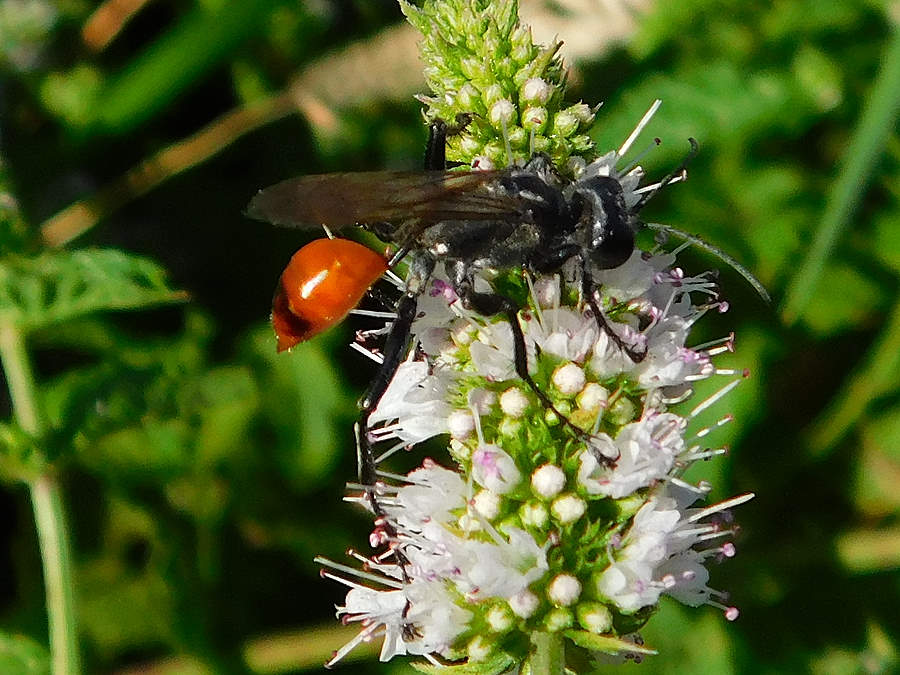
Prionyx
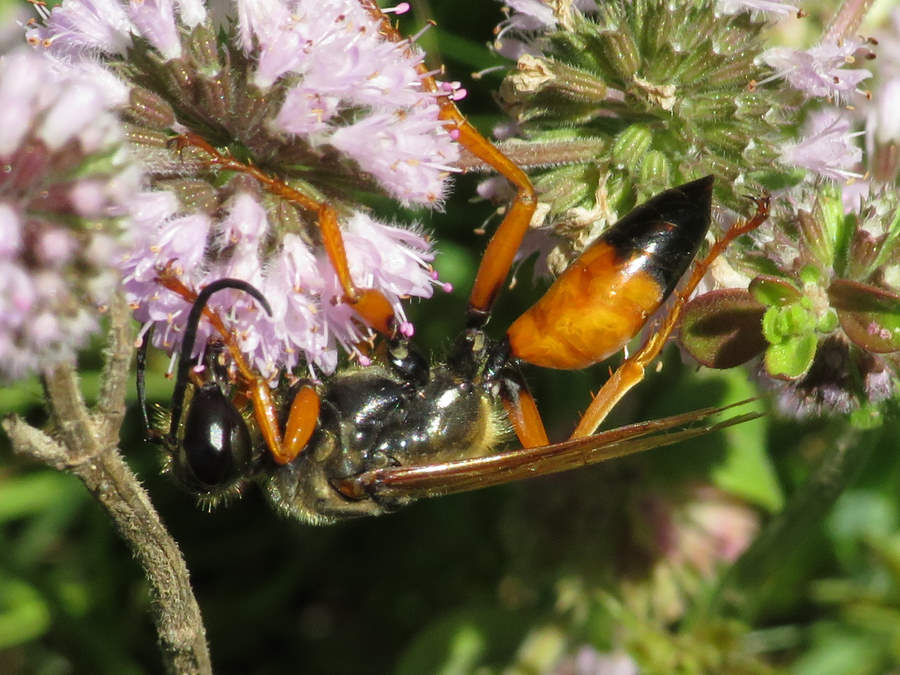
Great Golden Digger Wasp
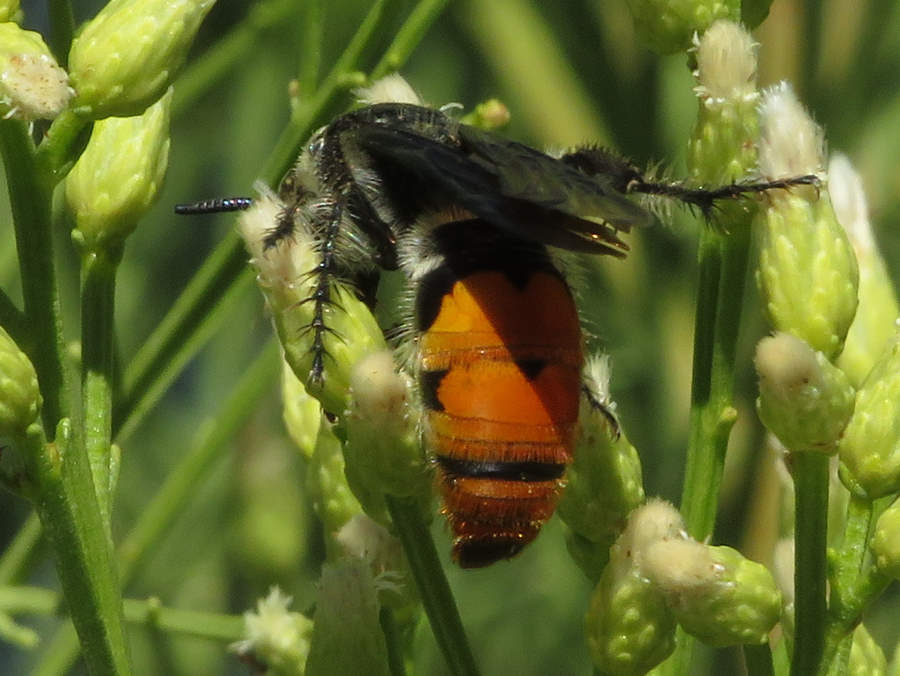
Scoliid wasp
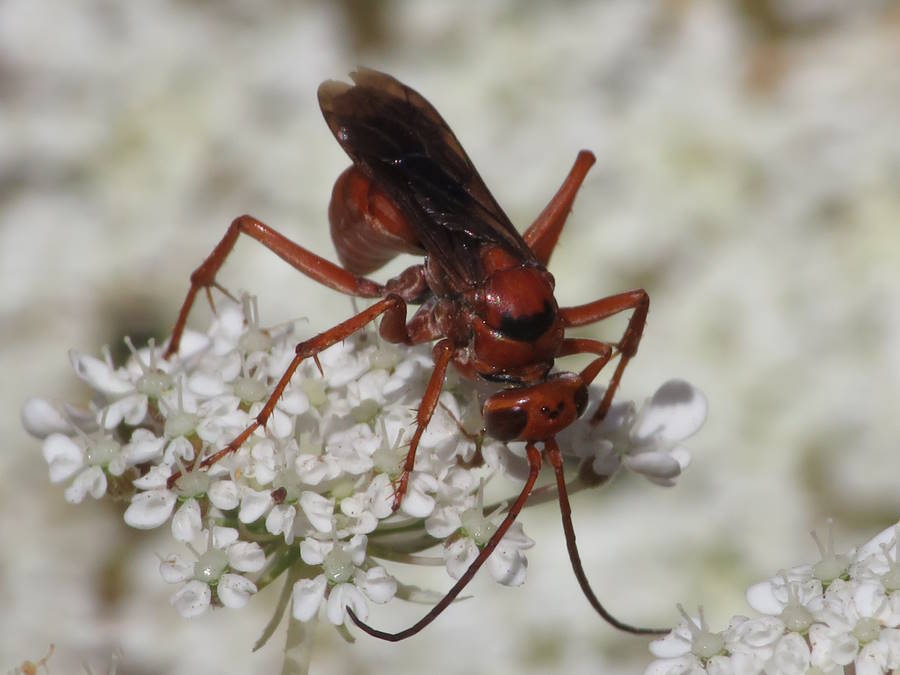
Spider wasp
Bees

North American hosts approximately one thousand different species, including its most familiar members, honey bees and bumble bees, along with less familiar names such as Cuckoo Bees, Carpenter Bees and Digger Bees.

Brown-belted Bumblebee (side)

Brown-belted Bumblebee (top)

Yellow-faced Bumble Bee (face)

Yellow-faced Bumble Bee (side)

Yellow-fronted Bumblebee (face)

Yellow-fronted Bumble Bee (side)

Yellow-fronted Bumble Bee (top)

California Bumblebee

California Bumble Bee (face)

Western Bumble Bee

Hairless and small in size, Cuckoo Bees family resemble wasps more than they resemble bees, making them among the least known of the family.
The common name cuckoo refers to the bee’s practice of brood parasitism, like it’s namesake in the bird world, the Cuckoo bird. Adults lay their eggs in ground nests of other bee species, and then let the young fend for themselves.

Digger Bee

Blue Orchard Bee

Leaf-cutter Bees (Megachile)

Western Longhorned Bee (face)

Western Longhorned Bee

Longhorned Bee

Oblong Woolcarder Bee

Female European Woolcarder Bee

Male European Woolcarder Bee

Stelis

Northern Rotund Resin Bee

California Digger-cuckoo Bee

Least Cellophane Cuckoo Bee

Red-footed Sharp-tailed Bee

Western Leafcutter Bee

Furrow Bee

Wide-striped Sweat Bee

Fine Lined Sweat Bee (female)

Fine Lined Sweat Bee (male)
